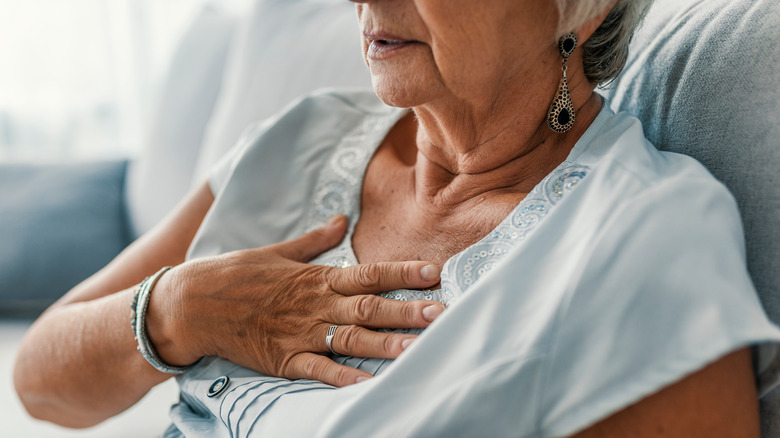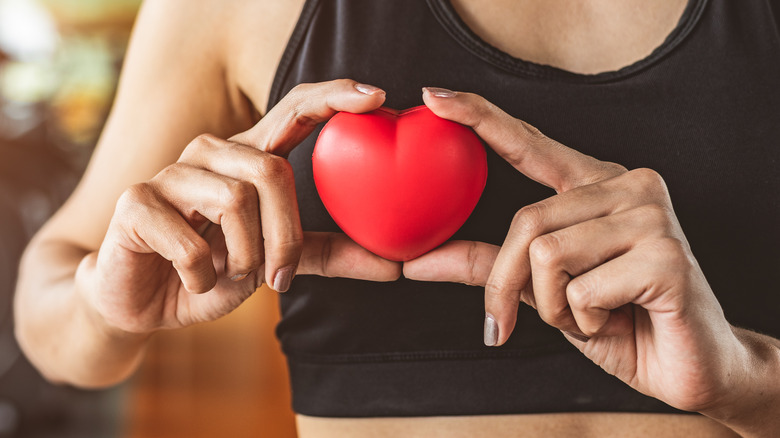What It Means When Your Chest Feels Tight After A Workout
Chest tightness can be worrisome and may lead you to think you're having a heart attack. However, chest tightness could signify several other health conditions. When your chest feels tight, specifically after a workout, it may mean something else.
You might have a serious medical condition if you have tightness in your chest after a workout, even if you're a young, fit athlete. It's important to see your doctor to rule out potential heart problems. Other signs you should see a doctor include discomfort in your chest that lasts a few minutes or longer, discomfort or pain in your upper body (neck, jaw, back, one or both arms, or stomach), shortness of breath, lightheadedness, nausea, and cold sweats. These could be signs of a heart attack, and you need to call 911 immediately (via the American Heart Association).
If you are experiencing tightness in your chest after exercising — alone or with other symptoms — you should see your doctor to determine the cause and receive proper treatment. Many health conditions can cause chest tightness, and it's important to rule out anything serious. But, what if you have chest tightness with or without other symptoms after working out? What does it mean?
Causes of chest tightness after exercise
Chest tightness after exercise could be caused by a rib fracture if you've taken a hit to the chest. This is common in contact sports, such as martial arts, boxing, lacrosse, and football (via the Cleveland Clinic). Chest tightness may also be caused by a strained or pulled muscle. If you're feeling chest tightness, it might be in the muscles that line your chest wall. It's not uncommon to feel this during or after any exercise, but especially with intense cardio. Try to relax your shoulders, avoid hunching over, and slow your breathing (via Livestrong).
Costochondritis is a common culprit behind chest tightness after exercise and is caused by inflammation in the cartilage between your ribs. It's also called chest wall pain and can occur after lifting heavy weights or intense exercise. Costochondritis will usually go away on its own. However, you can take ibuprofen to reduce the inflammation in the meantime (via The Healthy).
You could have exercise-induced asthma if you experience chest tightness, coughing, wheezing, and trouble breathing within 5-20 minutes after exercising. Exercise-induced asthma causes the tubes that bring air in and out of your lungs to narrow (via the American Academy of Allergy, Asthma, & Immunology). Your doctor can help you treat the condition.
Chest tightness could also be caused by respiratory illnesses such as COVID-19, influenza, or a cold. Therefore, you may want to get a COVID test (via The Healthy).


